
Dr. Patricia (Patsy) Duff
Professor
she / her / hers
Bilingual/multilingual education
Decolonizing methodologies
English as an additional language
Identity
Language Ideologies
Language Planning and Policy
Modern language and heritage language education
Multiliteracy and multimodality
Media
Selected Publications
Books and Special Journal Issues
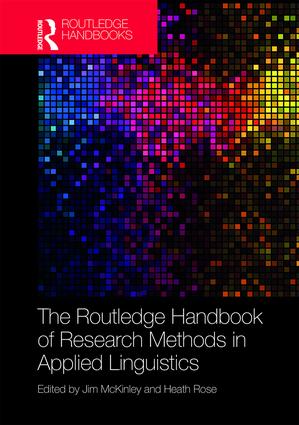
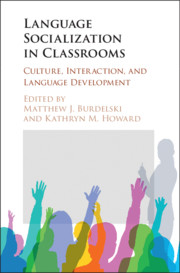
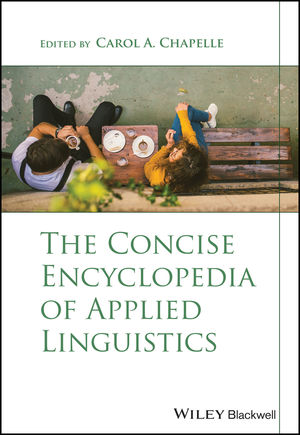
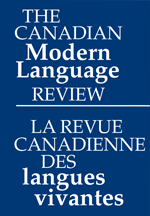
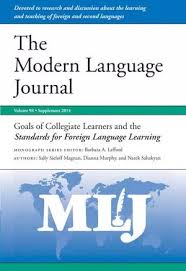


Duff, P., Anderson, T. , Ilnyckyj, R., VanGaya E., Wang, R., & Yates, E. (2013). Learning Chinese: Linguistic, Sociocultural, and Narrative Perspectives. Springer
Duff, P. & Li, D. (Eds.). (2009). Indigenous, minority, and heritage language education in Canada. [Special issue]. Canadian Modern Language Review, 66 (1).
Duff, P. (2008). Case study research in applied linguistics. New York: Lawrence Erlbaum/Taylor & Francis. (248 pages) Sample
Duff, P. A., Hornberger, N.H. (Eds.). (2008). Language socialization. Encyclopedia of Language and Education, Volume 8. Boston: Springer. Contains: 24 refereed chapters. (379 pages)
Chalhoub-Deville, M., Chapelle, C., & Duff, P. (Eds.). (2006). Inference and generalizability in applied linguistics: Multiple research perspectives. Amsterdam: John Benjamins. (248 pages)
Duff, P. & Labrie, N. (Guest Eds.) (2000). Languages and Work. Special Issue of the Canadian Modern Language Review, 57, 1.
Articles and Book Chapters
Duff, P. (2014). Language socialization into Chinese language and ‘Chineseness’ in diaspora communities. In X. L. Curdt-Chistiansen & A. Hancock (Eds.), Learning Chinese in diasporic communities: Many pathways to becoming Chinese (pp. 13-34). Amsterdam: John Benjamins.
Li, D., & Duff, P. (2014). Chinese language learning by adolescents and young adults in the Chinese diaspora: Motivation, ethnicity, and identity. In X. L. Curdt-Christiansen & A. Hancock (Eds.), Learning Chinese in diasporic communities: Many pathways to becoming Chinese (pp. 219-238). Amsterdam: John Benjamins.
Duff, P. (2014). Communicative language teaching. In M. Celce-Murcia, D. Brinton, & M.A. Snow (Eds.), Teaching English as a second or foreign language(4th ed.) (pp. 15-30). Boston: National Geographic/Heinle Cengage.
Kim, J. & Duff, P. (2012). The language socialization and identity negotiations of Generation 1.5 Korean-Canadian university students. TESL Canada Journal, 29(6), 82-92.
Duff, P., Wong, P., & Early, M. (2012). Learning language for work and life: The linguistic socialization of immigrant Canadians seeking careers in healthcare. Reprint. In Li Wei (Ed.), The Routledge applied linguistics reader (pp. 364-396). London: Routledge. Originally appeared in Canadian Modern Language Review, 57, 9-57.
Duff, P., & Zappa-Hollman, S. (2012). Pop culture and second language teaching and learning. In C. Chapelle (Ed.), The encyclopedia of applied linguistics. Wiley-Blackwell.
Duff, P. & Zappa-Hollman, S. (2012). Critical discourse analysis of pop culture. In C. Chapelle (Ed.), Encyclopedia of applied linguistics.Wiley-Blackwell.
Duff, P. (2012). Case study research. In C. Chapelle (Ed.), The encyclopedia of applied linguistics. Wiley-Blackwell.
Duff, P. (2012). How to conduct case study research. In S. Gass & A. Mackey (Eds.), Research methodologies in second language acquisition. (pp. 95-116). Malden, MA: Wiley-Blackwell.
Duff, P. (2012). Identity, agency, and SLA. In A. Mackey & S. Gass (Eds.), Handbook of second language acquisition. (pp. 410-426) London: Routledge. (invited)
Duff, P. (2012). Second language socialization. In A. Duranti, E. Ochs & B. Schieffelin (Eds.), Handbook of language socialization. (pp. 564-586) New York: Blackwell. (invited)
*Duff, P., & Talmy, S. (2011). Language socialization approaches to second language acquisition: Social, cultural, and linguistic development in additional languages. In D. Atkinson (Ed.), Alternative approaches to SLA. (pp. 95-116) London: Routledge.
Duff, P. (2010). Research approaches in applied linguistics. In R. Kaplan (Ed.), Handbook of applied linguistics (2nd ed.). Oxford: Oxford University Press. (invited)
Duff, P. & Kobayashi, M. (2010). The intersection of social, cognitive, and cultural processes in language learning: A second language socialization approach. In R. Batstone (Ed.), Sociocognitive perspectives on language use and language learning. Oxford: Oxford University Press.
Duff, P. (2010). Language socialization into academic discourse communities. Annual review of applied linguistics, 30, 169-192.
Duff, P. (2010). Language socialization. In S. McKay & N.H. Hornberger (Eds.), Sociolinguistics and language education. Clevedon, UK: Multilingual Matters. (invited).
Duff, P. & Li, D. (2009). Indigenous, minority, and heritage language education in Canada: Policies, contexts, and issues. Canadian Modern Language Review, 66, 1-8.
Duff, P. & Li, D. (2009). L’enseignement des langues autochtones, des langues officielles minoritaires et des langues d’origine au Canada : Politiques, contextes et enjeux. The Canadian Modern Language Review/La Revue canadienne des langues vivantes,66, 9–17.
Duff, P. (2009). Language socialization in a Canadian secondary school: Talking about current events. In R. Barnard & M. Torres-Guzman (Eds.), Creating communities of learning in schools (pp.165-185). Clevedon, UK: Multilingual Matters.
Li, D., & Duff, P. (2008). Issues in Chinese heritage language education and research at the postsecondary level. In A. W. He & Y. Xiao (Eds.), Chinese as a heritage language: Fostering rooted world citizenry (pp. 13-36). Honolulu: National Foreign Language Resource Center.
Duff, P. (2008). Heritage language education in Canada. In D. Brinton, O. Kagan & S. Bauckus (Eds.), Heritage language: A new field emerging (pp. 71-90). New York: Routledge/Taylor & Francis.
Duff, P. (2008). Introduction. In P. Duff & N. Hornberger (Eds.), Encyclopedia of language and education. Vol.8: Language socialization (pp. xiii-xix).New York: Springer.
Duff, P. (2008). Language socialization, higher education, and work. In P. Duff & N. Hornberger (Eds.), Encyclopedia of language and education. Vol.8: Language socialization (pp. 257-270).New York: Springer.
Duff, P. (2008). Language socialization, participation and identity: Ethnographic approaches. In M. Martin-Jones, A-M.de Mejia & N. Hornberger (Eds.), Encyclopedia of language and education, Vol. 3: Discourse and education (pp. 107-119). New York: Springer.
Duff, P. & Lester, P. (Eds.). (2008). Issues in Chinese Language Education and Teacher Development.Selected Papers, Shanghai Symposium, UBC Centre for Research in Chinese Language and Literacy Education. November 2008.
Duff, P. Introduction. In P. Duff, & P. Lester (Eds.). (2008). Issues in Chinese language education and teacher development: Selected papers from the Shanghai symposium (pp. 3-4). UBC Centre for Research in Chinese Language and Literacy Education. November 2008.
Duff, P. Issues in Chinese language teaching and teacher development. In P. Duff, & P. Lester (Eds.). (2008). Issues in Chinese language education and teacher development: Selected papers from the Shanghai symposium (pp. 5-48). UBC Centre for Research in Chinese Language and Literacy Education. November 2008.
Duff, P. (2007). Multilingualism in Canadian schools: Myths, realities, and possibilities. Canadian Journal of Applied Linguistics, 10 (2), 149-163.
Duff, P. (2007). Second language socialization as sociocultural theory: Insights and issues. Language Teaching, 40, 309-319.
Duff, P.A. (2007). Problematising academic discourse socialization. In H. Marriott, T. Moore, R. Spence-Brown & R. Melbourne (eds.), Learning discourses and the discourses of learning (pp. 1-18). Monash University e-Press/University of Sydney Press.
Duff, P. (2007). Qualitative approaches to second language classroom research. In J. Cummins & C. Davison (Eds.), Handbook of English language teaching, Part 2 (pp. 973-986) Philadelphia: Kluwer.
Duff, P. (2006). Beyond generalizability: Contextualization, complexity and credibility in applied linguistics research. In M. Chalhoub-Deville, M., Chapelle, C., & P. Duff (Eds.). Inference and generalizability in applied linguistics: Multiple research perspectives (pp.65-95).Amsterdam: John Benjamins.
Duff, P. (2005). ESL in secondary school: Programs, problematics, and possibilities. In E. Hinkel (Ed.), Handbook of research in second language teaching and learning (pp. 45-63). Mahwah, NJ: Lawrence Erlbaum.
Duff, P. (2005). Thinking globally about new literacies: Multilingual socialization at work. In J. Anderson, M. Kendrick, T. Rodgers & S. Smythe (Eds.), Portraits of literacy across families, communities and schools (pp.341-362). Mahwah, NJ: Lawrence Erlbaum.
Duff, P. (2004). Intertextuality and hybrid discourses: The infusion of pop culture in educational discourse. Linguistics and Education, 14/3-4, 231-276.
Duff, P. & Li, D. (2004). Issues in Mandarin language instruction: Theory, research, and practice. System, 32(3), 443-456.
Duff, P. (2003). New directions in second language socialization research. Korean Journal of English Language and Linguistics, 3, 309-339.
Chapelle, C. & Duff, P. (Eds.). (2003). Some guidelines for conducting quantitative and qualitative research in TESOL. TESOL Quarterly, 37, 157-178. [Duff is author of Case Study Methods section, pp. 163-168.]
Duff, P. (2003). New directions in second language socialization research. In Proceedings of the 2003 KASELL International Conference, Seoul Korea.
Duff, P. (2002). Teaching and learning English for global intercultural communication: Challenges and opportunities. English Teaching, 57(2), 245-263.
Duff, P. (2003). Review of B. Mohan, C. Leung, & C. Davison (Eds.). (2001). English as a second language in the mainstream. Language and Education, 17, 72-75.
Duff, P., Wong, P., & Early. M. (2002). Learning language for work and life: The linguistic socialization of immigrant Canadians seeking careers in healthcare. Modern Language Journal, 86, 397-422. (Article selected for journal exchange/reprinting from Canadian Modern Language Review, 57, 9-57).
Duff, P. (2002). The discursive co-construction of knowledge, identity, and difference: An ethnography of communication in the high school mainstream. Applied Linguistics, 23, 289-322.
Duff, P. (2002). Pop culture and ESL students: Intertextuality, identity, and participation in classroom discussions. Journal of Adolescent and Adult Literacy, 45, 482-487.
Duff, P., & Li, D. (2002). The acquisition and use of perfective aspect in Mandarin. In R. Salaberry & Y. Shirai (Eds.), The L2 [second language] acquisition of tense-aspect morphology (pp. 417-453). Amsterdam: John Benjamins.
Duff, P. (2002). Research approaches in applied linguistics. In R. Kaplan (Ed.), Handbook of applied linguistics (pp. 13-23). Oxford: Oxford University Press.
Duff, P. & Bailey, K. (Eds.). (2001). Identifying research priorities: Themes and directions for the TESOL International Research Foundation.TESOL Quarterly, 35, 595-616.
Duff, P. (2001). English for academic and occupational purposes. In P. Duff & K. Bailey (Eds.), Identifying research priorities: Themes and directions for the TESOL International Research Foundation. TESOL Quarterly, 35, 606-7.
Duff, P. (2001). Language, literacy, content and (pop) culture: Challenges for ESL students in mainstream courses. Canadian Modern Language Review, 58, 103-132.
Wong, F.P., Duff, P. & Early, M. (2001). The impact of language and skills training on immigrants’ lives. TESL Canada Journal, 18,2, 1-31.
Duff, P. (2001). Review of H. Byrnes (Ed.), (1998), Learning foreign and second languages. Canadian Modern Language Review, 502-505.
Duff, P. (2001). Review of T. Goldstein (1997), Two Languages at work: Bilingual life on the production floor. The Modern Language Journal, 85, 154-156.
Duff, P., F.P. Wong, & Early, M. (2000). Learning language for work and life: The linguistic socialization of immigrant Canadians seeking careers in healthcare. Canadian Modern Language Review, 57, 9-57.
Duff, P. & Labrie, N. (2000). Editorial/Éditorial. Introduction to special issue of Canadian Modern Language Review, Languages and Work, 57, 1-8.
Duff, P. (2000). Repetition in foreign language classroom interaction. In J.K. Hall & L. S. Verplaetse (Eds.), The development of second and foreign language learning through classroom interaction. Mahwah, NJ: Lawrence Erlbaum.
Duff, P., & Uchida, Y. (1997). The negotiation of sociocultural identity in post-secondary EFL classrooms. TESOL Quarterly, 31, 451-486.
Duff, P. (1997). The lexical generation gap: A connectionist model of circumlocution in Chinese as a second language. In G. Kasper & E. Kellerman (Eds.), Communication strategies: Psycholinguistic and sociolinguistic perspectives (pp. 192-215). New York: Longman.
Duff, P. (1997). Immersion in Hungary: an EFL experiment. In R.K. Johnson & M. Swain (Eds.), Immersion education: International perspectives (pp. 19-43). New York: Cambridge University Press.
Duff, P., & Early, M. (1996). Problematics of classroom research across sociopolitical contexts. In S. Gass & J. Schachter (Eds.), Second language classroom research: Issues and opportunities (pp. 1-30). Hillsdale, NJ: Lawrence Erlbaum.
Duff, P. (1996). Different languages, different practices: Socialization of discourse competence in dual language school classrooms in Hungary. In K. Bailey & D. Nunan (Eds.), Voices from the language classroom: Qualitative research in second language education (pp. 407-433). New York: Cambridge University Press.
Duff, P. (1996). Review of P.M. Lightbown & N. Spada, How languages are learned. Canadian Modern Language Review, 52, 340-342.
Duff, P. (1995). An ethnography of communication in immersion classrooms in Hungary. TESOL Quarterly, 29, 505-537.
Hasebe-Ludt, E., Duff, P., & Leggo, C. (1995). Community with/out unity: A postmodern reflection on language in global education. In M. Chapman & J. Anderson (Eds.), Thinking globally about language (pp. 67-90). Vancouver, BC: Research and Development in Global Studies, Centre for the Study of Curriculum and Instruction. UBC & the Canadian International Development Agency.
Polio, C., & Duff, P. (1994). Teachers’ language use in university foreign language classrooms: A qualitative analysis of English and target language alternation. The Modern Language Journal, 78, 313-26.
Coughlan, P., & Duff, P. (1994). Same task, different activities: Analysis of a SLA [second language acquisition] task from an Activity Theory perspective. In J. Lantolf & G. Appel (Eds.), Vygotskian perspectives on second language research (pp. 173-193). New Jersey: Ablex.
Duff, P. (1993). Tasks and interlanguage performance: An SLA [second language acquisition] research perspective. In G. Crookes & S. Gass (Eds.), Tasks in language learning: Integrating theory and practice (pp. 57-95). Clevedon, UK: Multilingual Matters.
Duff, P. (1993). Syntax, semantics, and SLA [Second Language Acquisition]: The convergence of possessive and existential constructions.Studies in Second Language Acquisition, 15, 1-34.
Duff, P. (1991). Innovations in foreign language education: An evaluation of three Hungarian-English dual-language programs. Journal of Multilingual and Multicultural Development, 12, 459-476.
Duff, P., & Polio, C. (1990). How much foreign language is there in the foreign language classroom? The Modern Language Journal, 74, 154-166.
Duff, P. (1990). Subjects (and topics) in Chinese students’ English. Monday Morning/Lundi Matin, 3(1), 10-15. Beijing: Canada/China Language Centre.
Duff, P. (1990). Developments in the case study approach to second language acquisition research. In T. Hayes & K. Yoshioka (Eds.),Proceedings of the First Conference on Second Language Acquisition and Teaching (Sept. 1988). Tokyo: International University of Japan. 34-87.
Duff, P. (1989). The overlap of possessive and existential constructions. In R. Carlson, S. DeLancey, S. Gildea, D. Payne, & A. Saxena (Eds.), Proceedings of the Fourth Meeting of the Pacific Linguistics Conference (pp. 64-86). Eugene, OR: University of Oregon.
Duff, P. (1986). Another look at interlanguage talk: Taking task to task. In R.R. Day (Ed.), Talking to learn: Conversation in second language acquisition (pp. 147-181). Rowley, MA: Newbury House.
Other
Duff, P. (2008). APEC second/foreign language standards and their assessment: Trends, opportunities, and implications . APEC EdNET Human Resources Development Working Group. APEC Secretariat. Singapore. APEC #208-HR-01.1. (22 pages) (Available online)
Duff, P. (2008). Foreign language policies, research, and educational possibilities. APEC EdNet contracted paper. US Department of Education. (25 ms pages, single-spaced).
Duff, P. (2004). Foreign language policy, research, and practice: A Western perspective. APEC Secretariat, Singapore.
Bailey, K., Brindley, G., Curtis, A., Davidson, F., Duff, P., Scott, S., & Tucker, R. (2000). TESOL Research Agenda. Official research agenda of TESOL International Organization.
Wieland, N., Duff, P., Reeder, K., & Roche, J. (1999). Symposium on Co-operative Education in Languages, September 24-28th, 1998 Report. CILS Reports 2, 1999. Centre for Intercultural Language Studies, University of British Columbia.
Duff, P. (1999). New directions in workplace-oriented TESOL research. Research Interest Section Newsletter. TESOL. Fall, 1999.
Duff, P. (1997). Research Interest Section Newsletter columns. TESOL.
Reeder, K., Roche, J., Duff, P. & Beers, M. (1997). Computer-based products to support ESL learners: Preliminary study. The Learning Engine Software Development Project. Technical Report No. 2. Univ. of British Columbia.
Duff, P. (1993). Changing times, changing minds: Language socialization in Hungarian-English schools. Unpublished doctoral dissertation, UCLA.
Duff, P. (1992). Facing the future now: Reflections from a student of applied linguistics. Special Feature Roundtable on Preparing Applied Linguists for the Future. Issues in Applied Linguistics, 3, 149-152.
Duff, P. (1991). The efficacy of dual-language education in Hungary: An investigation of three Hungarian English programs. Final Report for Year Two (1990-91) of the project. Language Resource Program, UCLA.
Duff, P. (1990). Proficiency testing in Hungarian English dual language schools: Fall 1990 report. Language Resource Program. UCLA.
Duff, P. (1986). Syntacticization of topic in Japanese and Mandarin students’ English: A test of Rutherford’s model. Occasional Papers Series, The University of Hawaii at Manoa.
Duff, P. (1985). Syntactization of topic in Japanese and Mandarin students’ English: A test of Rutherford’s model. Unpublished masters thesis, The University of Hawaii at Manoa.
Duff, P. (1980). The Japanese postpositions wa and ga: Syntactic, semantic, and pragmatic functions. Unpublished honours thesis, the University of Calgary.
Duff, P. (1980). The semantics of ‘tu’ and ‘vous’: Diachronic and synchronic functions. Calgary Working Papers in Linguistics. The University of Calgary.